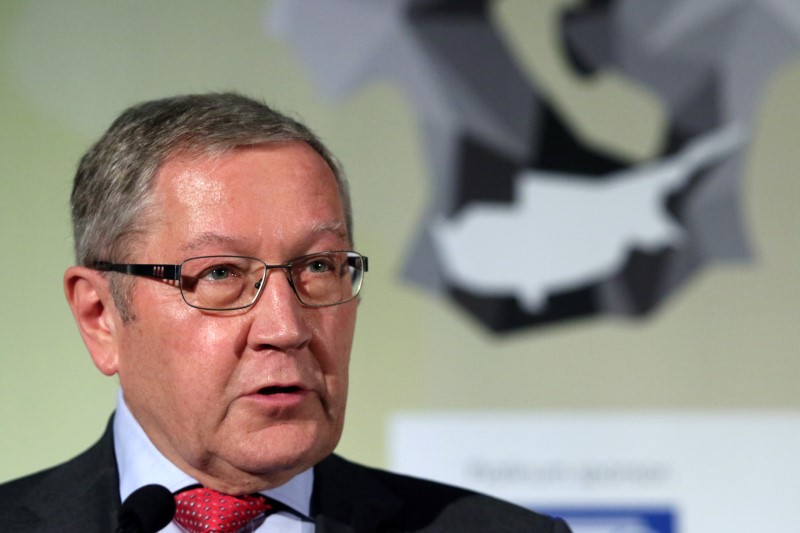BERLIN (Reuters) - The euro zone should have a limited joint fiscal capability to support individual member states in case of a sudden crisis, the head of the bloc's rescue fund was quoted as saying ahead of a meeting between the French and German leaders on Thursday.
Asked if German Chancellor Angela Merkel should back French President Emmanuel Macron's call for a single euro zone finance minister and a common budget, Klaus Regling told German business daily Handelsblatt that he did not want to lecture Merkel.
"But I think that we need a limited fiscal capacity in the euro zone in order to support single member states in case of sudden crisis," said Regling, a German who heads the European Stability Mechanism.
Such a "rainy day fund" should be roughly equivalent 1-2 percent of the euro zone's gross domestic product (GDP), Regling added. That would be roughly 100 to 200 billion euros ($115 billion to $229 billion) at present.
The European Commission has also suggested that the euro zone might need to issue collective debt and run a joint budget among ideas for deeper European integration around the single currency after Britain leaves the EU in 2019.
Regling said the introduction of such 'European Safe Bonds' or 'Safe Assets' would be "a huge step forwards" in principle.
"With that, we would get a market in Europe that would be as deep and liquid as the one for U.S. government bonds," Regling told the paper.
"But this will only work if we partly pool government debt in the euro zone, and for this I don't see a realistic possibility in the foreseeable future," he added.
Regling backed a proposal by German Finance Minister Wolfgang Schaeuble that the International Monetary Fund should not take part in any future euro zone bailout, and said European Central Bank participation was no longer needed either.
Turning to Greece, Regling said Athens should no longer need ESM aid loans after its current third bailout program ends in mid-2018 as long as it sticks to agreed reform measures.
Regling's comments followed a fresh push from Macron who said the EU remained an incomplete project and would require changes to its treaties that bring greater convergence between euro zone member states.
